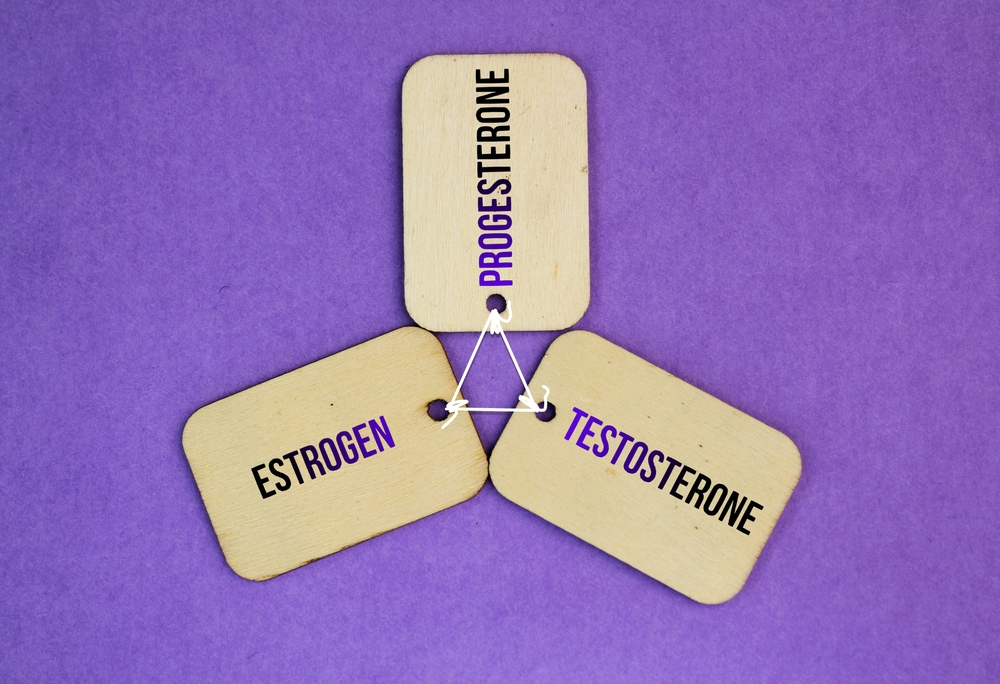Testosterone – Only for Men?
Our hormonal system is incredibly complex. Hormones are chemicals. They regulate a large number of bodily functions. Usually, we associate hormones with one’s birth gender. Just as pink is for girls and blue is for boys, estrogen is the hormone associated with femaleness and testosterone with maleness. Although that is somewhat true, our gender-determining hormones are much more complicated than the estrogen/female, testosterone/male binary would have us believe. Both men and women’s bodies create and need testosterone to function properly. Men’s bodies need (and produce) much higher levels of testosterone than women’s do, though.
Androgens, Including Testosterone
Androgens are hormones that help with sexual development. They’re associated with the beginning of puberty and are present in both women and men. Of all androgens present in the human body, testosterone is the most prevalent. Some of the roles it plays for both male and female bodies are:
- Starting the physical development occurring during puberty
- Bone density and muscle development
- Development of red blood cells
- Libido and sexual functioning
In women, androgens (including testosterone) are converted to a form of estrogen known as estradiol. As we age, androgen levels are affected in both male and female bodies, which means that testosterone levels decrease. This reduction in hormones causes physical symptoms and even health risks, including increasing the risk of osteoporosis-related fractures. Thus, testosterone replacement therapy is necessary for some women to achieve the appropriate hormonal balance.
Myths and Misconceptions
Our bodies do so many new and interesting things during menopause that the last thing women want is to become more masculinized because of the addition of testosterone to our bodies. Much of our angst can be debunked by clarifying the following myths and misconceptions.
- Testosterone doesn’t cause more aggression in women when administered in the proper dosage. It actually decreases irritation, anxiety, and aggression levels.
- Testosterone doesn’t increase the risk of breast cancer.
- Appropriate doses of non-synthetic testosterone do not make a woman more masculine in appearance or persona.
- Testosterone has been proven to be protective for the heart and as a protective agent against breast cancer.
- Testosterone is helpful with numerous menopausal/post-menopausal symptoms, including hot flashes, mood, urinary difficulties, insomnia, and pain.
- Testosterone has been tested for efficacy and safety long-term, confirming that non-oral ingestion of it at the right dosage is both safe and effective for women.
APEX Hormone Health Can Help You
APEX Hormone Health in Parker, CO is ready and able to help you balance your hormones so that you can feel like you again. Our staff is comprised of medical professionals who do a comprehensive medical examination before customizing a treatment plan for you. After your initial consultation, Apex Hormone Health offers hormone and peptide prescriptions delivered straight to your door. We also have the most competitive pricing in the area.
Call or Text: 720-856-0200 to begin feeling your best. We can create a customized care plan that may include balancing your testosterone levels whether you are male or female to protect your long-term health. You’re worth the investment that bioidentical hormone replacement therapy offers.
Image credit:
| Simonapilolla / Envato Elements |
Disclaimer: The information contained here was not written by a medical doctor and is intended for informational purposes only. This is not a substitute for medical advice.







